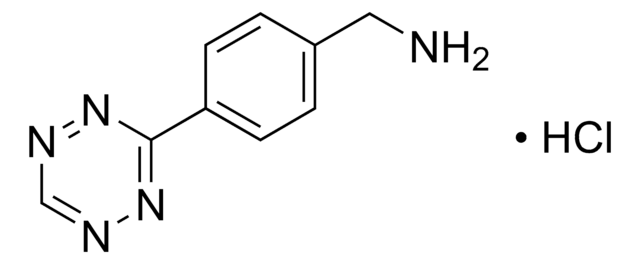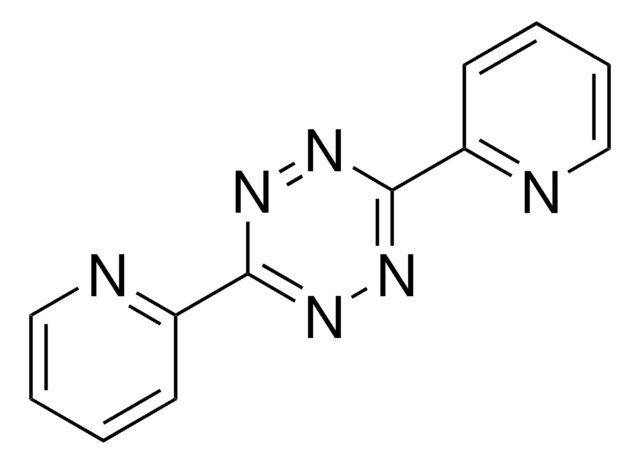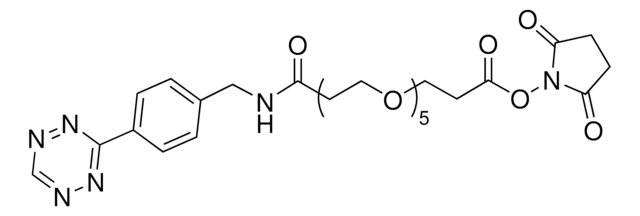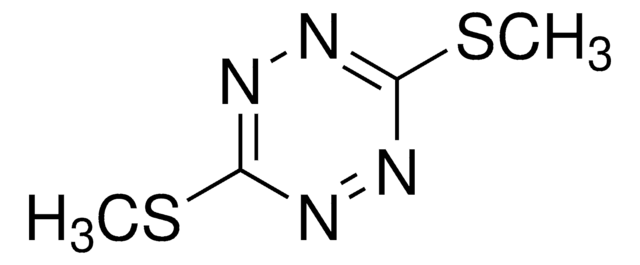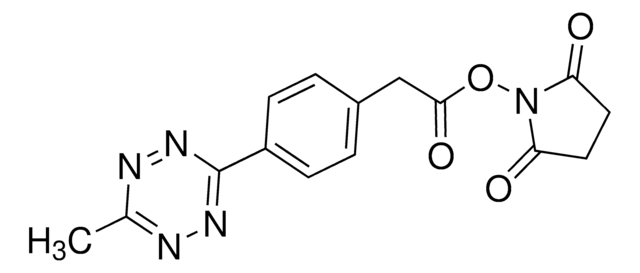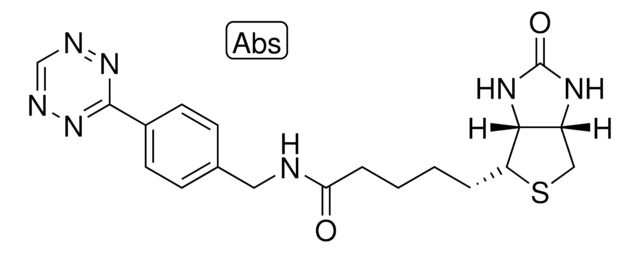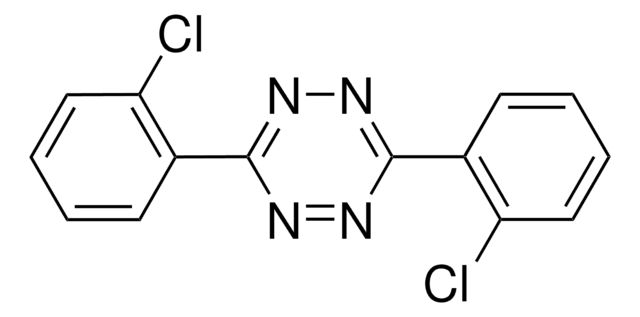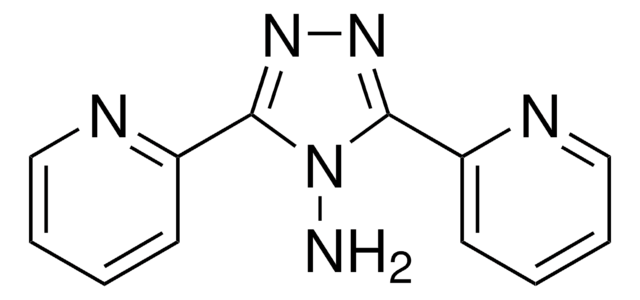919950
3-(([1,1′-Biphenyl]-4-ylmethyl)thio)-6-methyl-1,2,4,5-tetrazine
>98%
Synonym(s):
b-Tz, Minimal tetrazine
Sign Into View Organizational & Contract Pricing
All Photos(3)
About This Item
Empirical Formula (Hill Notation):
C16H14N4S
CAS Number:
Molecular Weight:
294.37
UNSPSC Code:
12352106
NACRES:
NA.22
Recommended Products
Related Categories
Application
3-(([1,1′-Biphenyl]-4-ylmethyl)thio)-6-methyl-1,2,4,5-tetrazine (b-Tz) is a minimal tetrazine derivative capable of undergoing [4+2] Diels-Alder cycloaddition reactions with strained alkenes, which makes it highly useful in bioorthogonal labeling and cell detection applications. Tetrazines are often incorporated into chemical probes or other small-molecule tools using linkers that may impact physicochemical properties or the performance of the resulting conjugate product. Here, Lambert et al demonstrated the linker-free incorporation of b-Tz via silver-mediated Liebeskind-Srogl cross-coupling with a variety of aryl and heteroaryl boronic acids. This ″minimal″ tetrazine approach will facilitate the introduction of tetrazine into diverse complex molecules and improved probes for live-cell imaging and in vivo chemistry.
Supporting products
PdCl2(dppf): 697230
Ag2O: 226831
Supporting products
PdCl2(dppf): 697230
Ag2O: 226831
related product
Product No.
Description
Pricing
Storage Class Code
11 - Combustible Solids
WGK
WGK 3
Flash Point(F)
Not applicable
Flash Point(C)
Not applicable
Choose from one of the most recent versions:
Certificates of Analysis (COA)
Lot/Batch Number
Don't see the Right Version?
If you require a particular version, you can look up a specific certificate by the Lot or Batch number.
Already Own This Product?
Find documentation for the products that you have recently purchased in the Document Library.
William D Lambert et al.
Journal of the American Chemical Society, 141(43), 17068-17074 (2019-10-12)
Described is a general method for the installation of a minimal 6-methyltetrazin-3-yl group via the first example of a Ag-mediated Liebeskind-Srogl cross-coupling. The attachment of bioorthogonal tetrazines on complex molecules typically relies on linkers that can negatively impact the physiochemical
Our team of scientists has experience in all areas of research including Life Science, Material Science, Chemical Synthesis, Chromatography, Analytical and many others.
Contact Technical Service